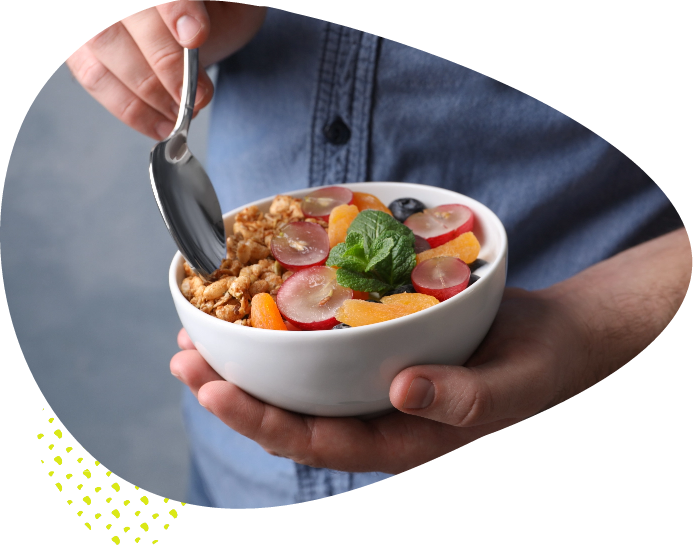PKU

What causes PKU?
In Australia and New Zealand, all newborns are screened for PKU by conducting a blood test. Upon diagnosis, a metabolic clinic team will provide immediate support and supply phe-free baby formula.
How can Bites Dietitians help?
PKU is a lifelong condition so our Dietitians will cater their care depending on the life-stage. A low protein diet is a necessary but restrictive practice which may manifest in nutritional and vitamin deficiencies. By conducting a comprehensive diet history, Bites dietitians can help identify ‘gaps’ in the diet and provide the appropriate recommendations and dietary interventions. This is to ensure all nutritional needs are met without exceeding phe target levels. Each individual living with PKU will have differing levels of protein tolerance. By monitoring and reviewing both phe levels and dietary intake, our Dietitians can help implement some protein-containing foods and adjust the ‘grams of protein’ allowance per day. They will also guide you in the art of protein counting, filling in food diaries and recognising the different sources of both protein ‘free’ and protein-containing foods.
Our Bites Dietitians also understand the social and environmental limitations regarding adherence to the PKU diet and supplements (especially amongst children). They will help identify specific barriers and help support and design strategies to best implement moving forwards. For example, PKU protein supplements are available in different forms so our dietitians will provide recommendations for specific supplements that best suit one’s nutritional needs, preferences and lifestyle.

An interesting fact about PKU
Sport and exercise are highly recommended for people living with PKU. Despite the myth that a high level of protein is required for muscle recovery and growth, PKU protein supplements can often provide enough protein for the body. Aim to do 150-300 min of moderate-physical activity per week as well as resistance training 2-3 times a week to optimise health and wellbeing. However, individuals with PKU must avoid commercial protein powders and supplements as they contain large amounts of phe. In fact, you can treat your PKU supplement as ‘protein shake’ and consume it after training sessions and spread doses throughout the day to optimise muscle recovery and growth.
What improvements can you expect from a tailored exercise program?
- Normal growth and development
- Phe blood levels within the normal range
- Improved overall nutritional status
For adults expect (if recommencing PKU diet/supplement):
- Increased energy levels
- Increased attention and concentration
- Improved mood and behaviour
- Reduced symptoms of depression/anxiety
- Phe blood levels within the normal range
- Healthy weight gain or weight loss (depending on client goal)


How will you know it’s working/you’re improving?
Helpful things to bring/remember before your first appointment
- Referral if you have one
- Blood results (phe/tyr)
- Medications and medical history
- Food record/apps
- Information regarding relevant PKU supplements/medications
Additional if you are a parent:
- Breastfeeding/formula records
- Growth charts (blue book)
Want To Know More About Other Conditions We Treat?
